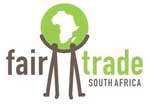Sales of Fairtrade products reach record high in SA
Sales of Fairtrade products in SA reached a record high of R234m last year‚ a 220% increase from 2011's R73.2m‚ Fairtrade International's annual report revealed on Tuesday (3 September).

Coffee‚ wine and chocolate are the leading local sales categories of Fairtrade.
Fairtrade provides social‚ economic and environmental standards that are dedicated to the empowerment of small farmers and farm workers‚ while ensuring that production is regulated and brought into the supply chain in a sustainable and environmentally sound way.
Amid a growing shift in consumers' social consciousness‚ Fairtrade products are becoming more popular as more companies stock these products.
With the introduction of three new Fairtrade coffees last year - Ciro‚ Woolworths and Espresseco's coffee capsules - the flagship Fairtrade product globally is on the rise in SA too.
Last year‚ South African consumers bought more than 120 tons of Fairtrade coffee with an estimated value of R30m - a 167% increase from 2011.
Wine proving popular
South Africans also drank 410‚000 bottles of Fairtrade wine with an estimated value of R23m‚ 60% up from 2011.
Mainly through the sale of Cadbury Dairy Milk chocolate bars‚ 2‚117 tons of Fairtrade chocolate were consumed locally last year.
In October 2011‚ this chocolate bar‚ made by Mondelez (formerly Kraft Foods)‚ became the first Fairtrade-certified confectionery product in SA‚ guaranteeing farmers in West Africa a better price for their cocoa.
Boudewijn Goossens‚ executive director of Fairtrade Label SA‚ said Fairtrade coffee and chocolate were core product categories internationally. The Fairtrade wine was unique to the South African market.
"As the biggest Fairtrade wine-producing country‚ this translates into additional benefits for South African farm workers who benefit not only benefit from better working and living conditions‚ but also from the Fairtrade development premium‚" she said.
When purchasing a Fairtrade-certified commodity‚ traders must pay an agreed Fairtrade development premium above the crop price. The premium is an empowerment tool that allows small-scale farmers and farm workers to invest in projects they consider necessary for their communities.
The Fairtrade certification mark was established in the early 1990s. About 7.5m people in 70 developing countries benefit from the international authentication system. More than 30‚000 Fairtrade products are now sold in more than 125 countries worldwide.